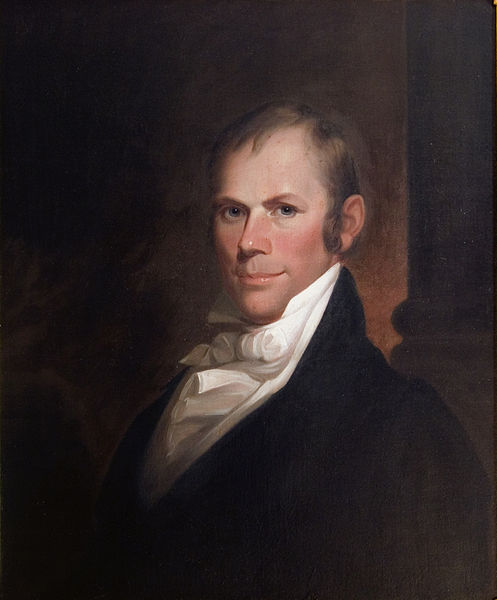Select or special committee (United States Congress)
A select or special committee of the United States Congress is a congressional committee appointed to perform a special function that is beyond the authority or capacity of a standing committee. A select committee is usually created by a resolution that outlines its duties and powers and the procedures for appointing members. Select and special committees are often investigative, rather than legislative, in nature though some select and special committees have the authority to draft and report legislation.
Henry Clay, Chairman of the Select Committee on the Various Propositions for the Admission of Missouri into the Union
United States congressional committee
A congressional committee is a legislative sub-organization in the United States Congress that handles a specific duty. Committee membership enables members to develop specialized knowledge of the matters under their jurisdiction. As "little legislatures", the committees monitor ongoing governmental operations, identify issues suitable for legislative review, gather and evaluate information, and recommend courses of action to their parent body. Woodrow Wilson once wrote, "it is not far from the truth to say that Congress in session is Congress on public exhibition, whilst Congress in its committee rooms is Congress at work." It is not expected that a member of Congress be an expert on all matters and subject areas that come before Congress. Congressional committees provide valuable informational services to Congress by investigating and reporting about specialized subjects.

The Senate Armed Services Committee chairman Carl Levin and ranking member John Warner in 2007 hearing opening statements during a confirmation hearing for a position in the Department of Defense.
The Senate Armed Services Committee hearing testimony in the Hart Senate Office Building in 2007.
The second committee room upstairs in Congress Hall, Philadelphia, Pennsylvania.
After committee deliberation, the Senate passed a joint resolution in 1955 authorizing Army General Douglas MacArthur to the post of General of the Armies of the United States.





